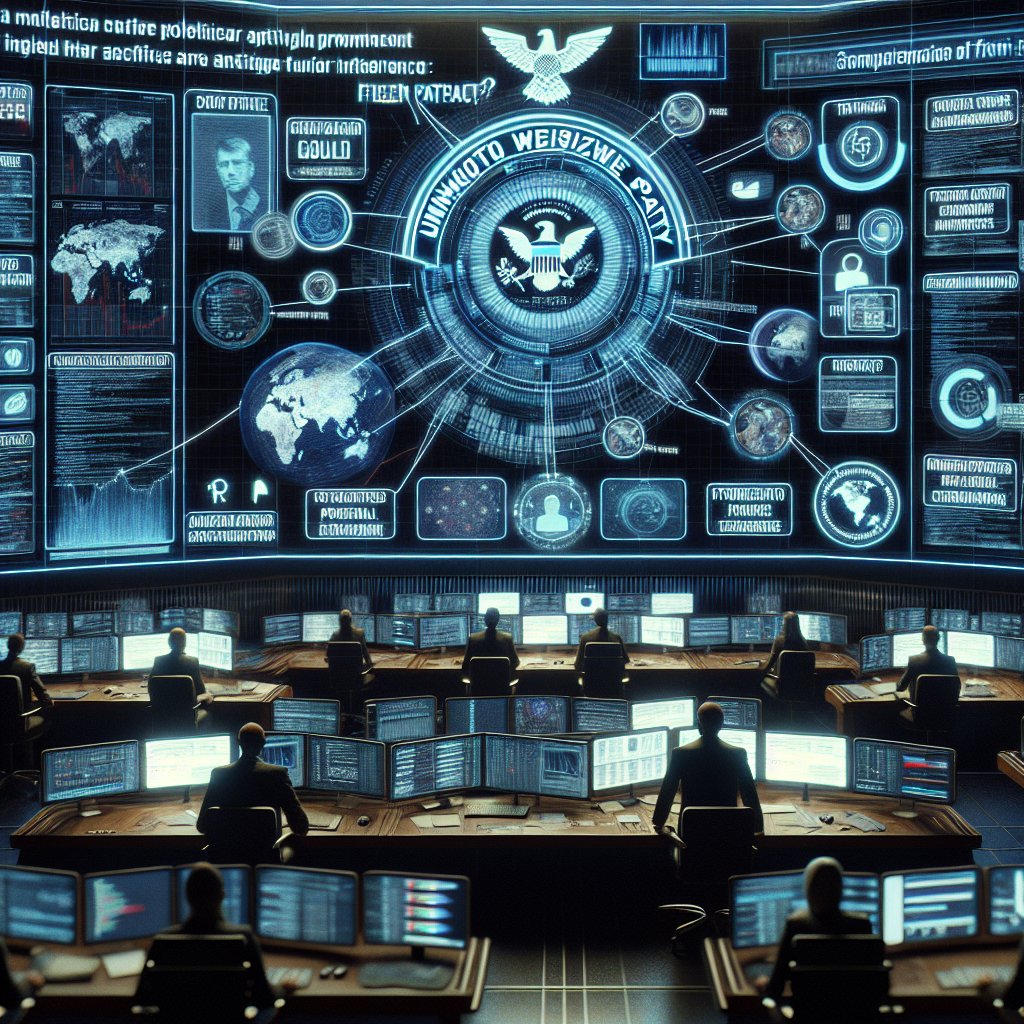Image created by AI
Pro-Russian Social Media Influence Detected in South Africa's Upcoming Elections
In recent developments that have raised eyebrows in the political sphere, social media accounts with a history of promoting Russian interests are now rallying support for the uMkhonto weSizwe Party (MKP), advocated by South Africa's former President Jacob Zuma. This information comes from an investigation by the Centre for Information Resilience (CIR), which is actively monitoring foreign interference in national affairs.
These findings are particularly alarming given the history of alleged Russian interferences, such as in the 2016 US election, where social media was weaponized to create discord and distrust in democratic institutions. Instances of Russian overtures to Africa have been noted, with pro-Russian sentiments supporting military regimes in West Africa.
It is significant that Jacob Zuma himself, a figure who has nurtured closeness with Moscow during his presidential service from 2009 to 2018, declared his support for the MKP against the ruling African National Congress for the forthcoming elections.
The implicated social media accounts are believed to have persistently propagated content favorable to Russia's stance on international issues, including endorsing its actions in Ukraine. Now, the same platforms are exhorting the MKP and illustrating parallels between Zuma and Russian President Vladimir Putin.
One particular account on the platform, formerly known as Twitter, boasts over 170,000 followers and has engaged with thousands of other profiles, amplifying its persuasive reach to potentially millions of users per post. The contents of these accounts mingle endorsements for the MKP and animadversion towards South Africa's current President Cyril Ramaphosa, interspersed with praise for Russia's foreign relations.
Allegations have also surfaced regarding these accounts retweeting deep fake videos of former US President Donald Trump supporting Jacob Zuma, further demonstrating the extent of disinformation campaigns.
The existence of such campaigns is hardly surprising to experts who note the historical ties between members of the ANC and Russian leaders. The Africa Centre for Strategic Studies has observed the growth of Russian disinformation efforts on the continent, especially within nations with vulnerable democratic structures.
South Africa, despite having comparably robust institutions, has not been immune to Russia's overtures due to pre-existing connections dating back to the times of the Soviet Union, where some South African politicians received training during the apartheid era.
The strategic significance of South Africa's relationship with Russia was underscored during Zuma's presidency, particularly with the country joining the BRICS group and the attempt to establish a costly nuclear-power pact with Russia.
While the implications of such interference remain to be fully understood, recent surveys suggest a seismic shift in the electorate's disposition, with MKP polling to seize a significant fraction of the votes and the ruling ANC facing an unprecedented dip below the 50% mark.
As the CIR continues to unveil the nuances of foreign interference in South Africa's democratic processes, the nation stands on the verge of a potentially transformative election outcome influenced by global powers.










